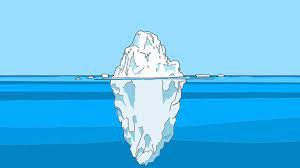Be slow to judge
I want to make a big claim: many of the world’s problems would disappear if people were slow to judge.
When someone cuts us off in the traffic, we immediately judge the other person as an idiot and seethe with anger. Perhaps the other person is rushing to take their kid to the hospital? Had we given the benefit of the doubt, we would have avoided that moment of exasperation and unnecessary stress.
Here is an interesting incident that Stephen Covey describes in his book The 7 Habits of Highly Effective People (source):
I remember a mini-paradigm shift I experienced one morning on a subway in New York. People were sitting quietly - some reading newspapers, some lost in thought, some resting with their eyes closed. It was a calm, peaceful scene.
Then suddenly, a man and his children entered the subway. The children were so loud and rambunctious that instantly the whole climate changed.
The man sat down next to me and closed his eyes, apparently oblivious to the situation. The children were yelling back and forth, throwing things, even grabbing people's papers. It was very disturbing. And yet, the man sitting next to me did nothing.
It was difficult not to feel irritated. I could not believe that he could be so insensitive as to let his children run wild like that and do nothing about it, taking no responsibility at all. It was easy to see that everyone else on the subway felt irritated, too. So finally, with what I felt was unusual patience and restraint, I turned to him and said, "Sir, your children are really disturbing a lot of people. I wonder if you couldn't control them a little more?"
The man lifted his gaze as if to come to a consciousness of the situation for the first time and said softly, "Oh, you're right. I guess I should do something about it. We just came from the hospital where their mother died about an hour ago. I don't know what to think, and I guess they don't know how to handle it either."
Can you imagine what I felt at that moment? My paradigm shifted. Suddenly I saw things differently, and because I saw differently, I thought differently, I felt differently, I behaved differently. My irritation vanished. I didn't have to worry about controlling my attitude or my behavior; my heart was filled with the man's pain. Feelings of sympathy and compassion flowed freely. "Your wife just died? Oh, I'm so sorry! Can you tell me about it? What can I do to help?" Everything changed in an instant.
Whenever you are in a situation where you want to judge someone, be it positive or negative, remember the iceberg.
Pull yourselves back from judging because you see the tip of the iceberg, and there is a lot that you don’t know about. Without full knowledge of the situation, how can you judge? Give them the benefit of the doubt.
Imagine a situation where you messaged your friend asking about going out for dinner, but she hasn’t responded for several hours now. You also see that she tweeted recently. So clearly, she is ignoring you, right?
Enter Hanlon’s razor (wikipedia):
Hanlon's razor is an adage or rule of thumb that states "never attribute to malice that which is adequately explained by stupidity."
We pass judgments because our brain likes stories with crisp endings, often negative ones. “She doesn’t want to have dinner with me because she thinks I am boring.”
While that may be true, we don't consider the other alternatives: she got interrupted and forgot to respond, or her phone was off, and those messages on Twitter were auto-scheduled, etc.
Our brain hates not to complete stories and keep things open-ended. The narrative fallacy compels us to come up with stories.
I remember another story from Barack Obama. He had run for President while campaigning to reduce the troop presence in Iraq and Afghanistan. After becoming the President, he did so successfully with Iraq and contemplated the same for Afghanistan.

He had asked his general Stanley A. McChrystal for a report on Afghanistan to understand the situation before deciding how to proceed. The report, termed COIN, actually suggested increasing the troop presence. Note that Obama, as the President and the commander-in-chief , had the ultimate say. But before he could make his decision, a series of troublesome events happen.
First, The Washington Post published an interview with General David Petraeus where he advocated for sending more troops. Then, General Mike Mullen appeared before the Senate Armed Services Committee and advocated for the same strategy. Then Bob Woodward published a synopsis of the COIN report, followed by McChrystal giving an interview to 60 Minutes and giving a speech in London reiterating the necessity to send more troops.
As I was reading about this in A Promised Land, I couldn’t help think how angry I would have been if I were in Obama’s situation. He was getting boxed in, and the Generals were undermining his leadership.
He could have fired them, but that would have caused more chaos. He could have reprimanded them, but perhaps that could have increased their conflict. Instead, he talks to them, in a stern-but-not-angry tone and sets the expectations clear.
In the book, Obama gives the Generals the benefit of the doubt. It does turn out that someone else had leaked the report to Bob Woodward. And moreover, he tries to advocate for them, saying they acted from their patriotic point of view. All they know about is the country’s safety, and from their single-minded viewpoint, they are trying to do everything to improve Americans’ safety.
As before, the moral here is that every story has two sides. From one point of view, the Generals were undermining the President, but they were trying to protect Americans from a different point of view. When you can hold the latter point of view along with the former, it builds empathy and helps navigate the situation better.
And now, coming back to my big claim (“a lot of the world’s problems would disappear if people were slow to judge.”), it’s because it avoids a lot of conflicts once you do this.
Be fast to ignore judgments
After thinking how smart it is, I recently posted a comment on Hacker News. But it swiftly got downvoted and attracted some sharp responses. I wasn’t happy being judged negatively from others. I was disappointed and became anxious.
But thankfully, I was able to take a step back, identify what was happening inside my own head, and realize I was over-reacting. In reality, it got mildly downvoted to negative two points, and the responses were not as sharp as I made you believe. The point is that we tend to overthink what others think about us!
Most people don’t have the time to sit and judge you. So that alone should be liberating.
And more importantly, the fear of getting judged is probably the most critical thing that prevents many people from doing important and valuable things and taking risks.
Once I was able to shake it off, I realized why people commented that way, and if anything, I realized I should be thankful for people to be honest with me. It helped me improve my thinking and change my opinion and see something for what it is.
Ryan Holiday puts this well in his video about Stoicism’s Tips for Solving Problems with People:
It’s strange, we not only care about other people’s opinions, but we care about the opinions of people in the future who we will never meet. Marcus Aurelius says, people who long for posthumous fame, they forget not only are they not going to be around to enjoy it, but the people in the future will be just as dumb and silly and ridiculous and obsessed with fad and valuing the wrong things as people right now. So what matters is what you think. He says, we love ourselves more than other people, but we care about their opinion more than our own. It is insane. You know, what’s right. You know what you value. You know what’s important. You know what your principles are. That’s what you have to measure yourself against. What you’re capable of. External approval, external validation, external results, that’s secondary.
While I wouldn’t say I don’t care about other people’s opinions, what crystallized in my head is that:
Don’t worry about being judged.
Take such judgment as feedback on where/how to improve.
A lot of the time, other people's judgment dictates whether we think we succeeded or failed. Forget failure, or for that matter, even success.
When you reframe your effort to being all about trying and growing, you take away the power from other people to judge you.



